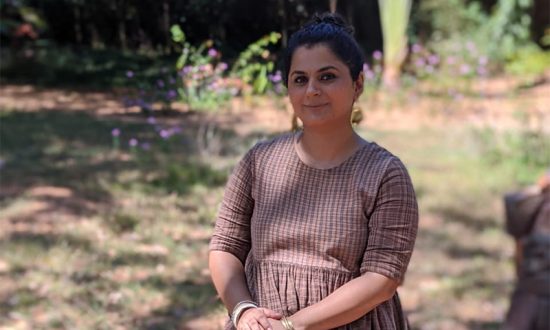Kadambari Rana is a socially conscious and motivated individual who is determined to create and be part of such systems of education which put the ‘child’ at the center of learning. After completing her B.A (Hons) Economics from St Stephens College she went on to complete an M.Sc in Economics from Cardiff University, UK. She has worked with in the corporate sector but her passion lies in education. In the year 2013, while working for Anand Automotive Ltd, Kadambari received the prestigious AIMA Young Managers Award. She has been a research Associate in Education at the Sri Aurobindo Society in Pondicherry.
Education is a continuous and organic process. Education is not limited to literacy or simple the intellectual stimulation through content but also includes emotional, psychological, physical, and spiritual awareness and growth. In terms of formal education, learning at any stage is interwoven and forages progressively into subsequent stages. In other words, learning in primary school, middle school, high school, and university are interconnected.
At each such progressive stage the learners intellectual, spiritual, physical, psychological, emotional, and social growth should simultaneously be developed for her to become an efficient, active, and contributing member of society.
Literacy on the other hand, as per the definition provided in the Indian census, is defined as “acquiring the skills of reading, writing with understanding. Anyone aged 7 or above with the ability to read and write at least in any one language is considered a literate person.’’
As per the definition followed by UNESCO, three main concepts form the baseline for literacy; one the ability to read and write, two-the knowledge of a language and three- the skills needed for a person to work, communicate, and participate in society. Literacy is the steppingstone towards education.
What is The Essence of Equitable?
A gender equitable approach to personal, social, and professional life is a system where access to rights, access to opportunities, right to make decisions, right to movement and expression, right to education and right to work is not affected by the individual’s sex or the gender they relate to. Gender equitable education system empowers all sexes and genders and promotes the development of healthy and effective social and life skills.
‘’A gender equitable education approach closes skill gaps that perpetuate pay differences. Gender-equitable education systems can contribute to reductions in school-related gender-based violence and harmful practices, including child marriage and female genital mutilation. Gender-equitable education systems help keep both girls and boys in school, building prosperity for entire countries.
An education free of negative gender norms has direct benefits for boys, too. In many countries, norms around masculinity can fuel disengagement from school, child labour, gang violence and recruitment into armed groups. The need or desire to earn an income also causes boys to drop out of secondary school, as many of them believe the curriculum is not relevant to work opportunities’’, UNICEF.
Denying women access to equal and quality education opportunities encourages gender segregation and stereotypical behaviour in society. Perceptions towards gender roles are sowed by members of family and society very early on in the lives of men and women which adversely impacts the quality of the socialization process.
Creating gender neutral learning environments can serve as a steppingstone to quality socialization. This in turn can help in creating favourable position for women in creative, scientific, technological, professional endeavours and lessen their personal and social struggles.
Any society that denies and discourages women from boldly participating in the learning process is only encouraging biased patterns that are deeply rooted in promoting the influential masculine identity.
Quality education can help both men and women understand these deep-seated issues in our society, raise their collective and individual levels of awareness, understand the importance of all people, irrespective of sex, in building a healthy and conscious society. In order to ensure sustainable development, it has become imperative to recognize the importance of all the sexes.
The Role Women Play in Society
‘’When a girl is educated, she is empowered. She can make her own decisions, raise the standard of living for her family and children, create more job opportunities, and reform society as a whole. As a result, a shift in attitudes toward girl child education in India is urgently needed. Every girl child deserves to be treated with love and respect. If all girls complete their education and participate in the workforce, India could add a whopping $770 billion to the country’s GDP by 2025!’’, Childs Right and You (CRY).
The UNESCO Agenda for Gender Equality
- Promote education for women’s self-empowerment at all levels and in all fields
- Encourage the equal access to knowledge in all fields
- Support women’s human rights by implementing the convention on the elimination of all forms of Discrimination Against Women (CEDAW) and other normative instruments and through legal literacy for girls and women
- Promote the attainment of gender parity, women’s full citizenship and equal participation in policy making and the elimination of stereotyped roles and expectations
- Foster partnership and dialogue and develop a new gender contract, underlying the long-term gains from the social transformation towards gender-sensitive societies
- Mainstream a gender perspective in the conceptualization, implementation and evaluation of policies relating to development, peace, and security.
- Collect and analyze gender specific statistical data, develop appropriate indicators to map the progress made towards gender sensitive societies
- Encourage women’s creativity and freedom of expression by supporting their cultural activities, research, training, capacity, networking
- Assisting in building a culture of peace in the minds of women and men by recognizing women’s capacity for leadership and non-volent resolution


